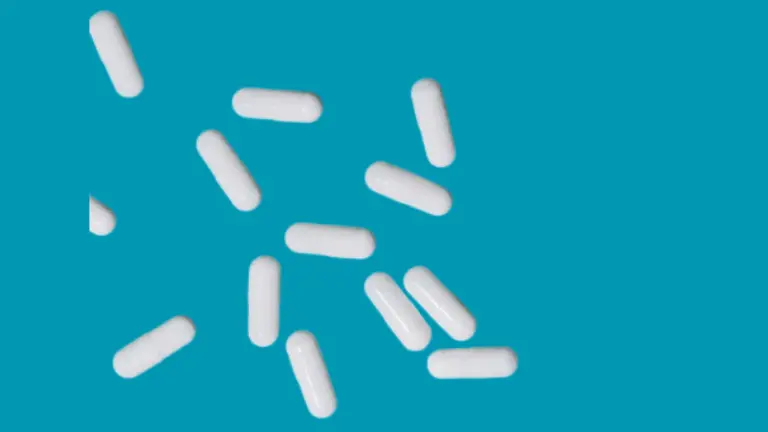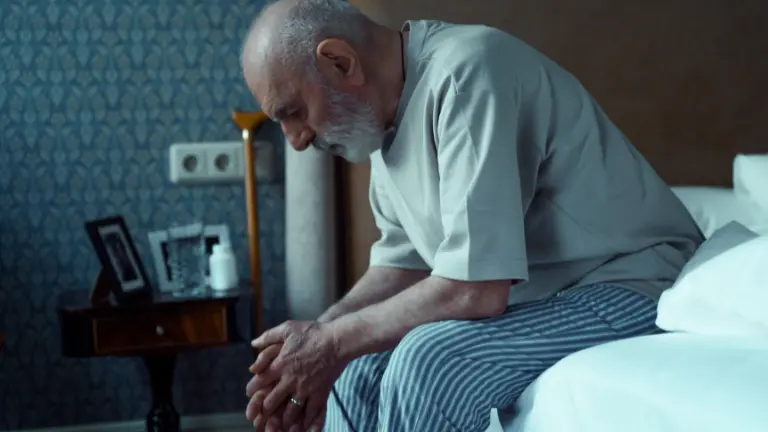
Taking Cialis does not inherently cause physical dependence. Regular use, however, may lead to psychological reliance in some individuals.
Cialis, a medication prescribed for erectile dysfunction (ED), has raised questions about the potential for dependence. Understanding how Cialis works can help dispel concerns. It functions by enhancing blood flow to the penis, aiding men in achieving and maintaining an erection.
Unlike certain drugs that can cause withdrawal symptoms after long-term use, Cialis doesn’t typically lead to a physical addiction. Still, it’s crucial to use Cialis as directed by a healthcare professional. Overuse or misuse might foster a mental dependency, where one might feel insecure about sexual performance without the medication.
It’s essential to address any underlying health issues contributing to ED and to discuss any concerns about dependence with a healthcare provider. This introduction sets the stage for a deeper exploration of Cialis, its usage, and its implications for men’s health.
Cialis Basics
Many people wonder about using Cialis and if it leads to dependence. Let’s dive into the basics of Cialis, its nature, and how it functions. This will help us understand its effects better.
What Is Cialis?
Cialis is a popular medication for treating erectile dysfunction (ED) and enlarged prostate symptoms. The active ingredient in Cialis is tadalafil. Unlike some other ED treatments, Cialis offers flexibility with its longer-lasting effects.
- Approved by FDA: It gained FDA approval in 2003.
- Prescription Drug: You need a doctor’s prescription to get Cialis.
- Available Dosages: Comes in various strengths, including 2.5 mg, 5 mg, 10 mg, and 20 mg.
| Dosage | Use |
|---|---|
| 2.5 mg and 5 mg | Daily use for ED |
| 10 mg and 20 mg | Use as needed for ED |
This medication helps improve blood flow to the penis, aiding men in achieving and maintaining an erection. It’s crucial to note that sexual stimulation is needed for Cialis to work effectively.
How It Works
Cialis works by relaxing the blood vessels in the penis, allowing more blood to enter. This process is key for achieving an erection. The science behind it involves blocking a specific enzyme, PDE5, found in the penis.
Here’s a simplified explanation:
- Blocks PDE5: This action increases blood flow.
- Enhances Effects of Nitric Oxide: This chemical is naturally released during arousal.
- Result: Improved erection capability.
One notable feature of Cialis is its 36-hour effectiveness window, which provides a longer period of potential activity compared to other ED drugs. This does not mean an erection lasts for 36 hours but that the ability to achieve one is improved for that time.
It’s also used for treating benign prostatic hyperplasia (BPH), working by relaxing muscles in the bladder and prostate, easing symptoms of BPH such as difficulty in starting the flow of urine.
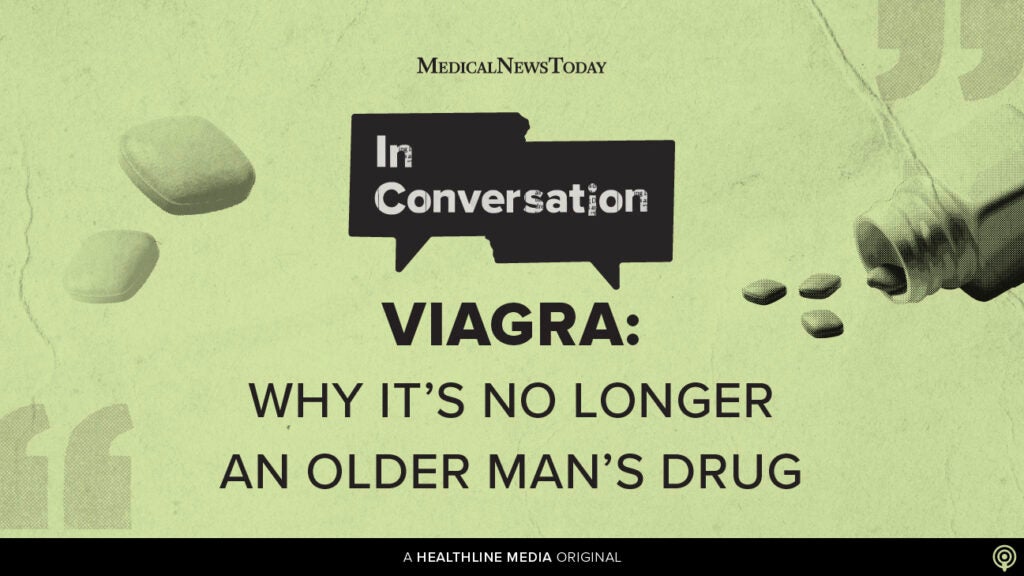
Credit: www.medicalnewstoday.com
Dependency Concerns
Many wonder about the long-term effects of taking medication like Cialis. One key worry is dependency. Can Cialis, a common treatment for erectile dysfunction, lead to a reliance on the drug for sexual performance? Understanding the difference between physical and psychological dependence is crucial. Let’s explore these concerns to see if Cialis could potentially create a dependency.
Physical Dependence
Physical dependence happens when the body adapts to a drug, often leading to tolerance and withdrawal symptoms.
Here’s what research says about Cialis:
- Cialis is not an addictive substance: It does not lead to physical dependence as some other medications might.
- How it works: It aids blood flow, which is a response, not a trigger for dependency.
- Use for treatment: Doctors often prescribe it for regular use or as needed, without a high risk of physical dependence.
Withdrawal is not a concern with Cialis, as it does not create a physical dependency. However, any changes in medication should always be with a doctor’s guidance. Here’s a simple comparison:
| Medication | Risk of Physical Dependence |
|---|---|
| Cialis | Low |
| Opiates (for comparison) | High |
Remember, tolerance to Cialis may develop, meaning more of the drug might be needed to achieve the same effect. Discuss with a healthcare provider if this happens.
Psychological Dependence
Psychological dependence involves a perceived need for a drug. It’s the feeling that you can’t function normally without it.
With Cialis, psychological dependence might manifest as:
- A belief that sexual performance is only possible with the drug.
- Worry or stress about sexual encounters without taking Cialis.
Addressing psychological dependence is key. Here are steps to prevent it:
- Open communication with your partner about expectations and concerns.
- Consulting a therapist for underlying psychological issues.
- Taking breaks from the medication under a doctor’s supervision.
A psychological dependence on Cialis can often be addressed by tackling the root emotional or mental health issues. It’s essential to understand the role of the medication and to use it as a tool, rather than a crutch. Keep a healthy dialogue with healthcare providers to ensure the best approach to treatment with Cialis.
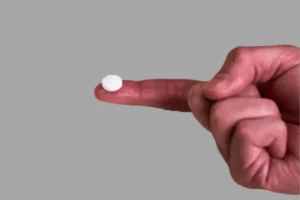
User Experiences
Many wonder about the long-term effects of taking Cialis. Users often share their experiences to shed light on this concern. Is dependency a real issue? Let’s dive into real stories from those who have used Cialis, and see what they have to say.
Common Testimonials
People who use Cialis often speak about its impact on their lives. They note how it helps with erectile dysfunction (ED).
Here are key points from their stories:
- Effectiveness: Most users find Cialis effective in improving their sexual function.
- On-demand vs. Daily Use: Some prefer taking it as needed, while others stick to a daily dose.
- Side Effects: A few report mild side effects like headaches or indigestion, which usually fade over time.
Users also discuss the fear of becoming reliant on the medication. Many report no issues with dependency. They take Cialis and maintain a normal life. Others mention psychological comfort in knowing the drug is available if needed.
Here’s a brief overview:
| User | Experience | Dependency |
|---|---|---|
| John | Uses Cialis occasionally | No dependency |
| Mike | On daily dosage | Concerned about reliance |
| Alex | Switched from on-demand to daily | Feels dependent but manages well |
Diverse Perspectives
While many share positive outcomes, others have different views. It’s important to consider these diverse perspectives. Some users express concerns over long-term effects. They worry about their body’s response if they stop taking the drug.
Here are varied experiences:
- Dependency Fears: A handful feel anxious about the possibility of becoming dependent.
- Confidence Issues: For some, reliance on Cialis affects their self-esteem.
- Alternatives Sought: Individuals look for natural ways to manage ED, to avoid long-term medication use.
Others share success stories about weaning off Cialis. They talk about lifestyle changes that helped them reduce reliance on the drug. These include exercise, diet, and stress management.
Here’s a snapshot of their experiences:
| User | Strategy | Outcome |
|---|---|---|
| Sarah | Improved diet and exercise | Less dependent on Cialis |
| David | Stress reduction techniques | Stopped using Cialis |
| Emma | Sought therapy for confidence | Uses Cialis less frequently |
Every individual’s journey with Cialis is unique. These testimonials and perspectives offer a glimpse into the varied experiences of users. They help inform those considering or currently using Cialis.
Medical Insights
Many wonder about the long-term effects of taking Cialis, a medication used to treat erectile dysfunction (ED). Concerns often focus on whether it could lead to dependency. Medical insights shed light on this, exploring both clinical expertise and research findings. Let’s delve into the facts to understand the implications of Cialis use.
Expert Opinions
Experts in urology and sexual medicine share insights on Cialis and dependency. They clarify that physical dependence on Cialis is not a typical outcome.
Here’s what they say:
- Cialis works by enhancing blood flow to the penis, not by altering brain chemistry.
- No addictive properties have been linked to Cialis, so it doesn’t cause a physical craving.
- Psychological dependence is a different matter. Some men might develop a reliance on the pill to feel confident in sexual situations.
Experts also highlight that consistent use doesn’t equate to addiction. Instead, it’s following a prescribed treatment plan. They stress the importance of adhering to a doctor’s guidance. This ensures safe and effective use of the medication.
Research Findings
Research supports expert views on the non-addictive nature of Cialis. Studies highlight key findings:
| Study Focus | Outcome |
|---|---|
| Long-term use | Patients did not show signs of increased tolerance or need for higher doses. |
| Withdrawal effects | No significant withdrawal symptoms were reported after stopping the medication. |
| Quality of life | Improved sexual confidence and satisfaction, not linked to dependency. |
Further studies suggest that the benefits of Cialis for ED can extend to an improved overall sense of well-being. This is due to the enhanced sexual performance and satisfaction. Researchers emphasize the absence of dependency risk when used as directed by healthcare professionals.
Alternatives To Cialis
Finding alternatives to Cialis is vital for those wary of dependence. Many worry about needing Cialis forever. Yet, alternatives exist, offering relief without fear of dependency. Let’s explore these options.
Other Medications
Several medications besides Cialis can help with erectile dysfunction (ED). These alternatives work similarly but have different components.
They include:
- Viagra (Sildenafil): Well-known, effective for many.
- Levitra (Vardenafil): Offers a slight difference in how long it stays in the system.
- Stendra (Avanafil): Known for its fast action.
Each medication has its pros and cons. Consider these:
| Medication | Onset Time | Duration |
|---|---|---|
| Viagra | 30-60 min | 4-6 hours |
| Levitra | 30-60 min | 4-5 hours |
| Stendra | 15-30 min | 6 hours |
Choosing the right one depends on personal needs and medical advice.
Natural Remedies
Natural remedies offer a gentler approach to ED. They include:
- L-arginine: An amino acid that boosts nitric oxide, improving blood flow.
- Red ginseng: A herb known for enhancing sexual performance.
- Ginkgo biloba: Improves blood flow, potentially aiding ED.
These options have different benefits:
| Natural Remedy | Benefits |
|---|---|
| L-arginine | Improves blood flow |
| Red ginseng | Boosts sexual performance |
| Ginkgo biloba | Enhances circulation |
Remember, effectiveness varies by individual. Consulting a healthcare provider is best before starting any new treatment.

Credit: www.hims.com
Safe Usage Tips
Many wonder if taking Cialis leads to dependency. The good news is, with correct use, it doesn’t. Let’s explore some safe usage tips to ensure Cialis helps without causing harm.
Dosage Guidelines
Following the right dosage guidelines is key to using Cialis safely. Here are some important points:
- Consult a doctor before starting. They will give you the best dose.
- Never take more than prescribed. It can be dangerous.
- Understand that Cialis comes in different doses. Your needs determine the dose.
Here’s a simple table to understand the typical dosages:
| Usage | Dosage |
|---|---|
| Daily use | 2.5 mg or 5 mg |
| As needed | 10 mg or 20 mg |
This table shows the most common dosages. Remember, your doctor will decide what’s best for you.
Avoiding Misuse
To avoid becoming dependent on Cialis, avoid misuse. Here are tips to help:
- Follow doctor’s orders. Don’t change your dose without talking to them.
- Don’t mix Cialis with other similar medications without a doctor’s okay.
- Be aware of side effects. If they happen, talk to your doctor.
Also, don’t use Cialis as a solution for stress or anxiety. It’s meant for physical conditions. Healthy lifestyle choices can also improve your condition. Eating well, exercising, and reducing stress are all important.
Remember, Cialis is a tool to help, not a cure. Using it safely means you can benefit from it without worry.
Long-term Effects
Many people wonder about the long-term effects of taking Cialis. This medication, known for treating erectile dysfunction (ED), works by increasing blood flow to the penis. Concerns often arise about whether its prolonged use leads to dependence. Let’s delve into the potential risks and health considerations linked to long-term Cialis use.
Potential Risks
Understanding the risks associated with long-term Cialis use is vital. While it’s not classified as addictive, some men may become psychologically dependent, feeling they can’t perform without it.
Below are key points to consider:
- Tolerance: Over time, the body might get used to the drug, potentially leading to reduced effectiveness.
- Side effects: Long-term use can increase the chances of experiencing side effects such as headaches, back pain, or indigestion.
- Interactions: Cialis can interact with other medications, which might pose risks if taken for extended periods.
It’s also crucial to note that long-term Cialis use has not been linked to severe health issues like heart disease or cancer. However, the table below highlights some of the common side effects:
| Side Effect | Frequency |
|---|---|
| Headache | Common |
| Back pain | Less common |
| Indigestion | Occasional |
| Nasal congestion | Rare |
Health Considerations
When taking Cialis for an extended period, it’s important to monitor your health closely. Regular check-ups with a healthcare provider can ensure safe use.
Here are some health considerations to keep in mind:
- Medical history: A history of heart conditions or blood pressure issues may require special attention.
- Lifestyle: Healthy habits like exercise and a balanced diet support overall well-being and can improve the medication’s effectiveness.
- Other medications: Always inform your doctor about any other drugs you’re taking to prevent harmful interactions.
Especially for men with underlying health issues, the impact of Cialis on the body must be monitored. Below, find an overview of important factors to discuss with a healthcare professional:
| Factor | Description |
|---|---|
| Cardiac Health | Assessment of heart function before and during treatment |
| Liver Function | Tests to ensure the liver can process the medication |
| Kidney Health | Regular check-ups for those with kidney impairment |
| Other ED Treatments | Consideration of non-pharmacological options |
Always consult with a healthcare professional before starting or continuing the use of Cialis for long periods. They will guide you on safe usage and necessary precautions.
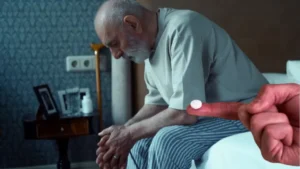
Frequently Asked Questions
Can Cialis Cause Drug Dependence?
No, Cialis (tadalafil) does not cause chemical dependency. It treats erectile dysfunction by enhancing blood flow, not by altering brain chemistry or creating a psychological need. However, psychological reliance is possible if one becomes accustomed to its effects.
How Does Cialis Work In The Body?
Cialis works by inhibiting the phosphodiesterase type 5 (PDE5) enzyme, which results in the relaxation of the blood vessels in the penis. This action increases blood flow, facilitating an erection in response to sexual stimulation.
Is Daily Use Of Cialis Safe?
Yes, daily use of Cialis is safe for most men. It is approved for daily use in a lower dosage form, allowing for spontaneous sexual activity. Always consult with a healthcare provider before starting any medication regimen.
What Are The Long-term Effects Of Taking Cialis?
Long-term effects of Cialis are generally well-tolerated. Some men may experience persistent side effects, such as mild back pain or muscle aches. Regular follow-ups with a healthcare provider are recommended to monitor any potential long-term consequences.
Conclusion
Wrapping up, Cialis, as a treatment option, doesn’t inherently lead to dependency. It’s designed for effective management of ED symptoms, promoting confidence in your sexual health. Always consult your doctor for guidance and adhere to prescribed usage to minimize any risks of psychological reliance.
Embrace a healthy lifestyle alongside medication for the best outcomes.

